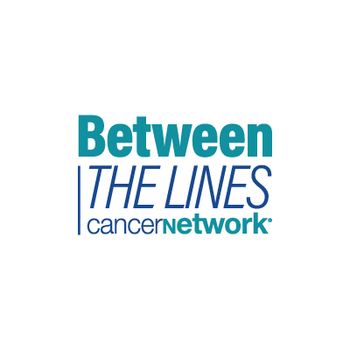
Paul G. Richardson, MD, and Christina Gasparetto, MD, offer insights into the use of proteasome inhibitors in relapsed or refractory multiple myeloma.

Your AI-Trained Oncology Knowledge Connection!


Paul G. Richardson, MD, and Christina Gasparetto, MD, offer insights into the use of proteasome inhibitors in relapsed or refractory multiple myeloma.

Patients with upper tract urothelial carcinoma may benefit from treatment with oral FGFR1-3 inhibitor infigratinib.

Numerous renal and cardiac indices as well as quality-of-life measures were improved with a comprehensive vs routine nursing care model.

Findings from the phase 3 ARCHES trial highlighted a long-lasting survival improvement for patients with metastatic hormone-sensitive prostate cancer who were treated with enzalutamide plus androgen deprivation therapy regardless of whether they received prior local therapy.

Neoadjuvant atezolizumab as a treatment for muscle-invasive urothelial cancer of the bladder yielded a high disease-free survival.

Based on the results of the AZA-JMML-001 trial, the FDA has approved azacitidine for use in newly diagnosed juvenile myelomonocytic leukemia.
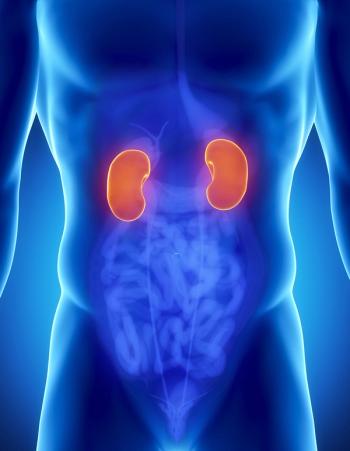
Patients with advanced renal cell carcinoma who were treated with lenvatinib plus pembrolizumab had health-related quality of life comparable with sunitinib.

Patients with estrogen receptor–positive, HER2-negative advanced or metastatic breast cancer may receive alternative treatment with switch maintenance endocrine therapy and bevacizumab and experience notable efficacy and improved safety vs continued weekly paclitaxel and bevacizumab.

A panel of experts provides a discussion on treatments for newly diagnosed transplant-eligible and transplant-ineligible relapsed multiple myeloma, and how recent clinical trial data presented at ASH 2021 can be applied to clinical practice.

Updated results from the phase 3 IKEMA study showed a progression-free survival benefit with the addition of isatuximab to carfilzomib and dexamethasone that was consistent with interim results in patients with relapsed multiple myeloma.
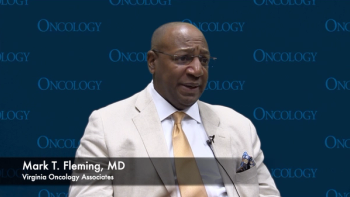
Mark T. Fleming, MD, spoke about how use of 18F-rhPSMA-7.3 for PET/CT scans in patients with recurrent prostate cancer bests conventional imaging.

Results from a phase 3 trial indicated that olaparib yielded better-preserved health-related quality of life and reduced pain burden vs the control for patients with homologous recombination repair gene–altered metastatic castration-resistant prostate cancer who progressed following a prior next-generation hormonal drug.
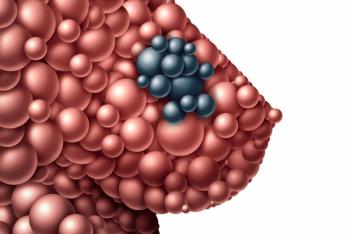
Findings from a post-hoc analysis identified disparities in Black patients with early hormone receptor–positive breast cancer that could not be explained by early discontinuation of endocrine therapy, clinicopathologic characteristics, insurance coverage, or neighborhood deprivation index.

Breast cancer mortality could be reduced by half for patients with ATM, CHEK2, and PALB2 pathogenic variants who undergo annual MRI screenings between the ages of 30 to 35 years and annual MRI screenings and mammography for those 40 or older.

Alina Markova, MD, speaks to the mechanism of action of topical ruxolitinib INCB018424 phosphate 1.5% cream vs oral ruxolitinib and other topical therapies used in the treatment of non-sclerotic and superficially sclerotic chronic cutaneous graft-versus-host disease.

Patients with untreated, IGHV-mutated and -unmutated chronic lymphocytic leukemia experienced better overall survival and progression-free survival with ibrutinib and rituximab compared with fludarabine, cyclophosphamide, and rituximab.

Investigators used a patient-specific score to predict treatment outcomes in pediatric patients with acute myeloid leukemia, allowing them to identify who may benefit from higher-dose chemotherapy.

Final end point analysis of the GEMSTONE-301 trial confirmed that patients with stage III non–small cell lung cancer experienced significant clinical benefit and promising efficacy following consolidation therapy with sugemalimab monotherapy.

Awareness of smoking as a risk factor for bladder cancer is lower compared with other smoking-related conditions, highlighting a need for further education in urology.

Uday R. Popat, MD, spoke about how well post-transplant cyclophosphamide vs tacrolimus plus methotrexate to prevent graft-vs-host disease was performed in this trial.
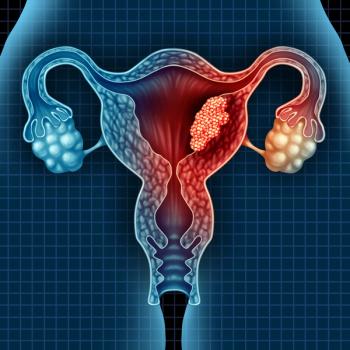
Findings from the phase 2 DOMEC trial showed that although durvalumab plus olaparib was well tolerated, it missed the study’s primary end point of progression-free survival in patients with metastatic or recurrent endometrial cancer.

Results from the phase 3 CheckMate 816 trial show patients with resectable non¬–small cell lung cancer had improved event-free survival when treated with neoadjuvant nivolumab plus chemotherapy vs chemotherapy alone.

Geriatric consultations vs standard of care for patients with hematologic malignancies who were pre-frail or frail did not significantly improve survival at 1 year but did increase discussions on end-of-life goals of care.
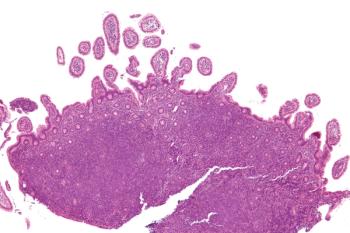
Treatment with brexucabtagene autoleucel appears to be a cost-effective treatment for patients with relapsed/refractory mantle cell lymphoma following treatment with a Bruton tyrosine kinase inhibitor.
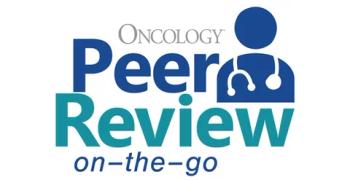
Tanios Bekaii-Saab, MD, details the GOZILA platform for colorectal cancer with experts Kristen Ciombor, MD, MSCI, and John Strickler, MD.

Superior post-scan disease upstaging in patients with recurrent prostate cancer was observed with 18F-rhPSMA-7.3 compared with conventional baseline imaging.

Patients with endometrial cancer who have low volumetric skeletal muscle measurements had lower 3-year overall and progression-free survival rates.

Patients with untreated unresectable or metastatic urothelial carcinoma and PD-L1 expression of 1% or more who received treatment with nivolumab and ipilimumab in the first-line setting did not experience an improved overall survival vs those getting standard-of-care chemotherapy, according to a final analysis of a phase 3 trial.

Lisa Sprod, PhD, MPH, provides perspective on a cancer-related fatigue assessment tools.

This review article written by Danielle Gentile, PhD, et al, reviews the management of cancer-related fatigue in integrative oncology.